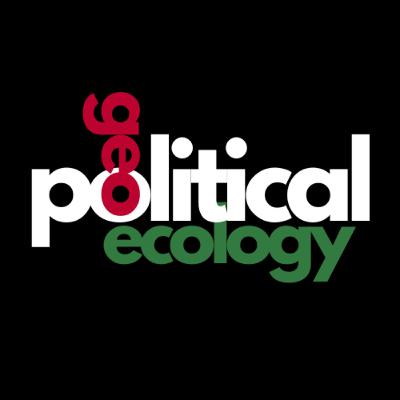Can the State Protect Nature? w/ Rosemary Collard and Jessica Dempsey
Description
In this episode, we talk with Jessica Dempsey and Rosemary Collard about how to think about the capitalist state not as a unified actor, but as a contradictory and often incoherent set of institutions, practices, and relationships that both authorize extraction and seek legitimacy. We explore how environmental governance in Canada is shaped by this contradiction: despite laws and frameworks that are supposed to protect nature, we end up with continued and expanded ecological harm.
We also dig into how Jess and Rosemary draw from feminist and abolitionist thought to analyze the state as a supplier of nature to capital, a manager of resistance, and a key player in the reproduction of racial and sexual hierarchies. We touch on patriarchy as an ecological regime, and think through how capitalism can both destroy the conditions of life (cannibalistically) and adapt to ecological collapse (parasitically).
The conversation then moves to global environmental politics; why international agreements like the Paris Agreement and the Convention on Biological Diversity must be understood in relation to trade, debt, and tax regimes and what it means to build a political internationalism in response.
This is a conversation about the complexity of power and the need to confront it clearly. Jess and Rosemary bring sharp analysis, grounded in struggle, to help us make sense of the terrain we’re fighting on.
---
Jessica Dempsey and Rosemary Collard run the Extinction Paradox research group. Together, they’ve theorized and investigated how the Canadian state manages the deep contradictions at the heart of environmental governance—passing laws to protect nature while simultaneously enabling capital’s ongoing exploitation and destruction of ecosystems. Their feminist critiques of capitalism and the capitalist state unearth dynamics that are often obscured by design. These include how dominant narratives of ecological collapse—even when critical vis-à-vis denialism—often fail to name the structural drivers of crisis, or to acknowledge how racial and sexual hierarchies are central to how ecological harm is organized, justified, and sustained.
Jess is professor of Geography at the University of British Columbia, researching the political economies of biodiversity conservation and the contradictions of environmental governance under capitalism. Her work combines Marxist, feminist, and anti-colonial theory to examine how states, corporate, and financial actors navigate the ecological crises they help produce. She is the author of Enterprising Nature, a book that critically explores market-based conservation efforts.
Rosemary is professor of Geography at Simon Fraser University, whose work focuses on the intersections of wildlife, capitalism, and the state. She draws from feminist political economy and multispecies studies to explore how wild animals are governed within regimes of extraction and enclosures. Her book, Animal Traffic, traces how wild animals are made into lively capital in the global exotic pet trade.
We highly recommend reading both of their books, and to keep an eye out for a book they’re working on together now for future publication.
Some of their featured writings:
- Patriarchy is an Ecological Regime
- Capitalist Natures in Five Orientations
- A Manifesto for Abundant Futures
Browse the research group’s page:





